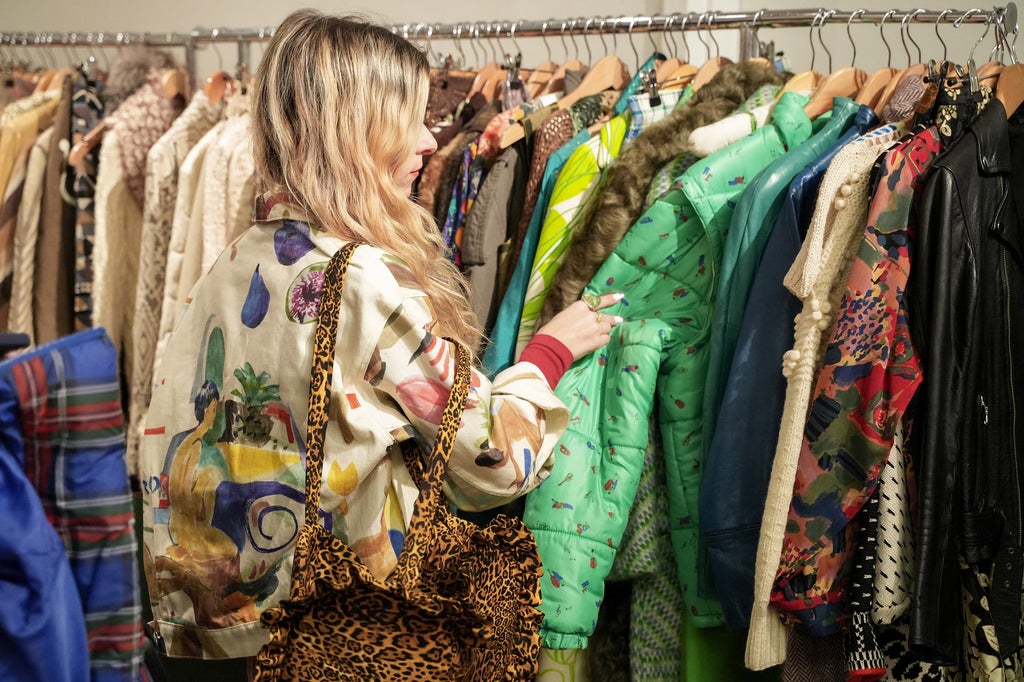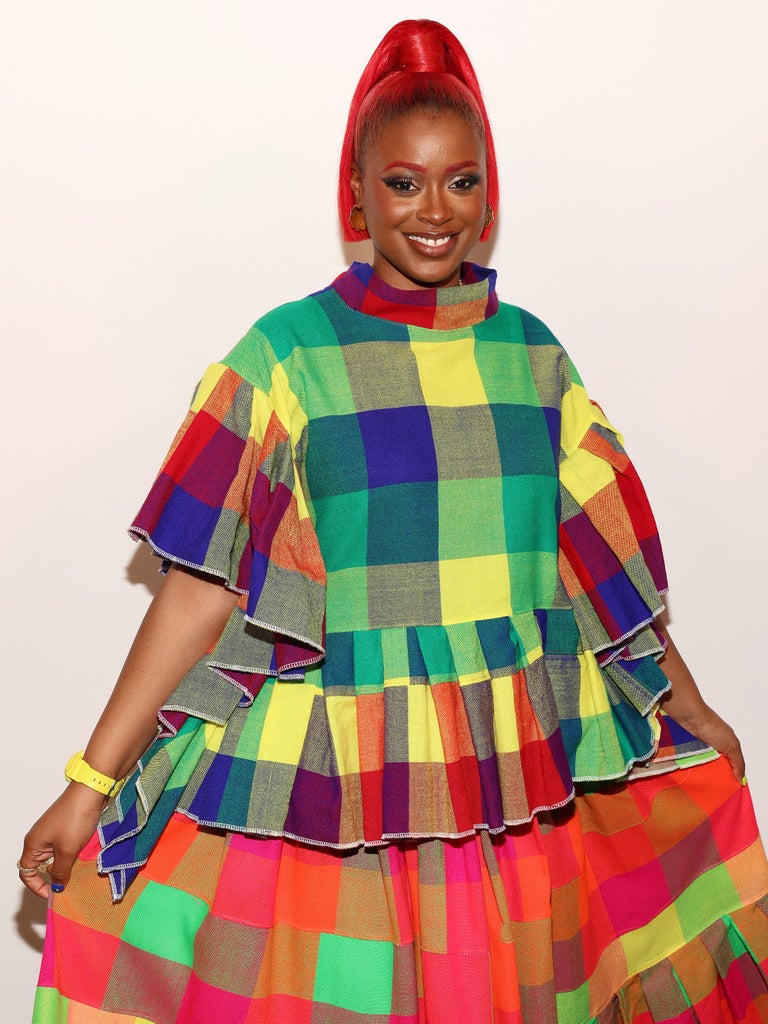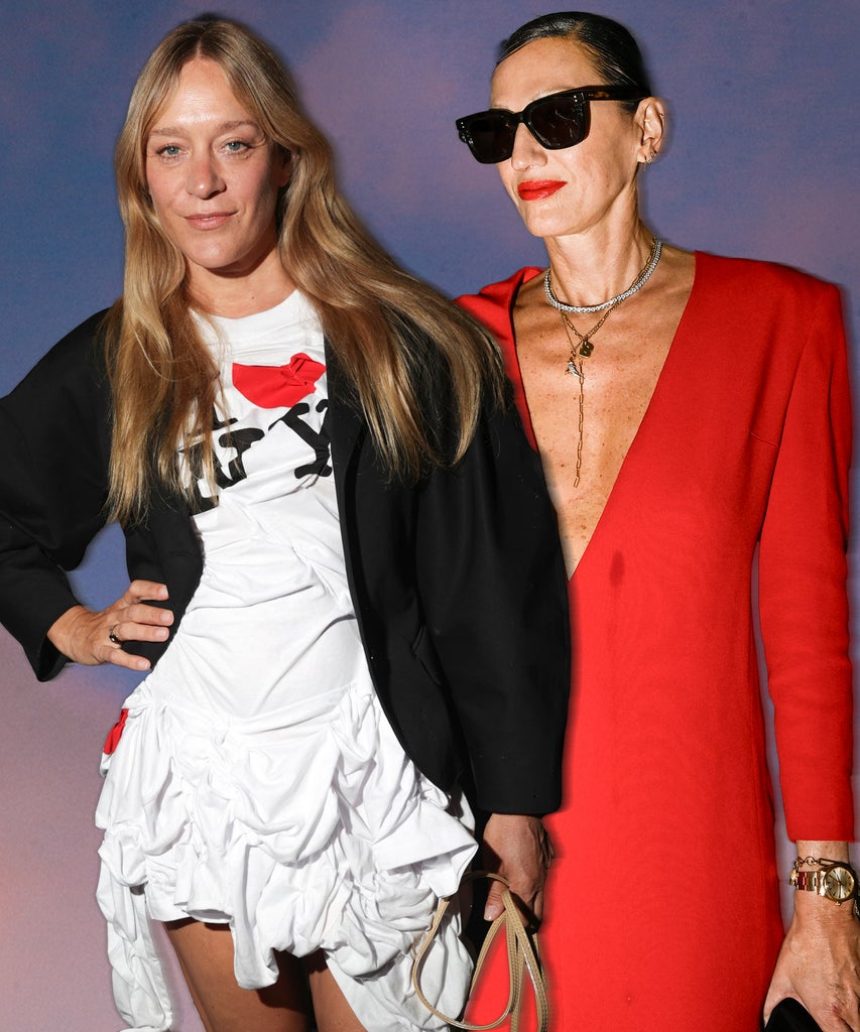Several years before the Chloë Sevigny closet sale took over our feeds (and several New York City blocks) in 2023, the iconic actor hosted another sale. This one was smaller and inside a storefront in Chinatown — I walked in when there were about ten minutes left, desperate to get my hands on something owned by THE fashion woman of the last three decades.
When I got inside, it was Sevigny, a few organizers, and twelve empty racks. I sifted through the (by that point) sparse remnants of her wardrobe, quickly, hiding my excitement about sharing a room and a potential garment with my fashion icon. I touched a shirt, and she said, “I like that one.” I bought it, of course.
When I got it home, I realized the shirt didn’t really fit. But that wasn’t the point — it was hers, and now it was mine. To me, that was enough reason to tap in.
Fast-forward a few years, and celebrity-fronted and -hosted secondhand sales are a dime a dozen. Former J.Crew Creative Director and RHONY star Jenna Lyons, perhaps seeing the success of Sevigny’s, did one where the entrance fee was $15. (She’d done one with The Real Real years back.) Jemima Kirke made t-shirts and sold her shoes in Red Hook, far from any subways — and people still lined the block. For many, it seems, being known for a certain aesthetic is a surefire way to get people (New Yorkers, at least) to want a piece of your life as their own. And it’s not just normal fans: Olivia Rodrigo managed to score a piece from Sevigny’s most recent sale.

While celebrities undoubtedly have burner accounts to sell their clothing, actual sanctioned partnerships with resale brands are growing more across sites like TheRealReal, Vestiaire Collective, and Depop. In 2023, Nuuly, the rental service owned by URBN, tried the idea out with Tierra Whack; the rapper rented 40 pieces from her tour and videos for a limited time to fans.
“Celebrities are recognizing fashion not only as a form of personal expression but also as a blueprint for collective representation within their fandoms,” explains Agus Panzoni, Depop’s Trend Specialist. “Resale apps play a crucial role in this dynamic, providing fans with a way to source their “uniforms” while fostering connections with like-minded individuals.”
Of course, the celeb-focused resale is more than just about obsession with a famous person you like — and perhaps significantly more. The peer-to-peer secondhand market is growing rapidly, regardless of how many followers a person has. According to data provided by Consumer Edge, year-over-year sales growth on resale reached +6% in December 2024; in the first three weeks of 2025, it has already reached +7% YOY.
That bump was seen in a variety of types of markets, from in person to resale apps and websites. “Grailed was the biggest winner (up more than 160%), as shoppers were likely drawn to the social aspect of its platform,” the data revealed. “Other notable winners included Depop (up more than 75%), City Thrift, Vinted, Savers, Clothes Mentor, and Vestiaire Collective.”

Michael Gunther, VP, Head of Insights at Consumer Edge, notes that the variety is significant, indicating just how pervasive the peer-to-peer secondhand market is becoming. “What’s particularly striking is the diversity of winners, from online platforms such as Grailed to traditional thrift stores and omni-channel merchants, underscoring the broad appeal and staying power of this trend,” he says.
It makes sense then that celebrity culture would make its way into a growing consumer shift. For years, signatures on limited vinyl, collectible items from movies, and even merch have been ways for fans to buy into the people they follow, but times change and the secondhand market is the future.
“The majority of our celebrity shops will sell out within 24 hours, some within five minutes,” Panzoni says. “Our top celebrity shops, like Pokimane’s, have sold out in two minutes; Gabbriette’s shop [sold] out in a few hours.”
These sales are undoubtedly part of a circular economy that many agree is necessary to address fashion’s overproduction problems. But the irony here might be that the instinct is still to consume when you may not need to. I, for one, wanted to buy that secondhand shirt because of the caché and the adjacency to a person I admire — that’s still a form of consumption that’s fueling the sustainability issues.
Still, bringing people who may be hesitant to shop secondhand into the world of circularity might be a net positive. For the sites working through resale, it’s a chance to get more fans on their sites to see their full offerings, with the hopes they stop there first in the future. Pazoni thinks it might be both: “As the resale economy continues to thrive, celebrity closet sales are scaling rapidly, tapping into the consumer desire for community and circular fashion.”
Resale is set to grow even more in the next four years. According to ThredUp’s 2024 resale report, “by 2028, the global secondhand market will reach $350 billion.” For the celebrities selling, they might be part of a shift bringing fans in at faster and more ravenously, but they are also tapping into an already changing — and lucrative — resale landscape.
Like what you see? How about some more R29 goodness, right here?
Luxury Fashion Items To Invest In 2025
Refinery29 Loves: Everything To See & Shop In Jan








